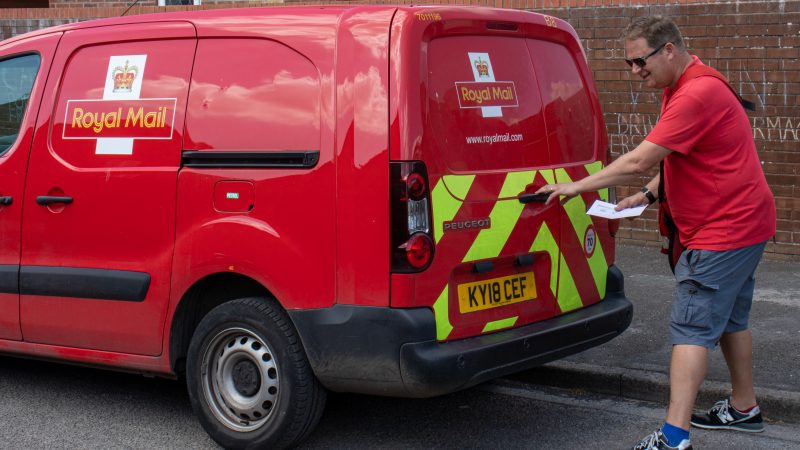
Postal workers in the Communication Workers Union have voted overwhelmingly to continue industrial action in their ongoing dispute with Royal Mail, with almost 96% of those taking part in the ballot backing further strikes.
The CWU announced this afternoon that its members have voted in favour of more walkouts, by 95.9% on a 77.3% turnout, an increased turnout on its two previous strike ballots. The union said the result was the “biggest mandate for strike action since the implementation of the 2016 Trade Union Act”.
General secretary Dave Ward said: “After two national ballots, 18 days of action, constant management intimidation and scores of unjust disciplinary cases against their colleagues, postal workers have shown their dignity and determination once again.
“This vote is a historic testament to CWU members across the country who have stood firm against the most severe attacks faced by any set of workers since the miners. It is proof that postal workers will not accept their livelihoods being destroyed so that a few at the top can generate serious profits at their expense.
“It is proof that workers loyal to an historic institution like Royal Mail will not accept it being turned into an Uber-style, bog-standard gig economy employer.
“It is proof that for Royal Mail to begin functioning normally again, there needs to be a change in negotiating approach from its leadership that recognises the depth of feeling from the workforce that make their company.
“These people will never be bullied, intimidated or harassed into submission, and this result is a concrete demonstration of that spirit. I urge responsible voices in Royal Mail’s leadership to take stock of what has happened today.”
CWU members had been due to stage a 24-hour walkout from 12:30pm today to 12:30pm on Friday, but the strike action was called off earlier this month following a legal challenge by Royal Mail.
Royal Mail said it challenged the industrial action on the basis of the reasons the strike had been called, citing what it described as a “legal error”.
The CWU said its legal team had advised that there was a risk that losing in court against the company would impact the status of the union’s new strike ballot, “given the laws in this country are heavily weighted against working people”.
The union said its elected leadership had called the 24-hour strike after the company began “forcing through unagreed changes” to the structure of work at offices across the country, which the CWU claimed was “in direct contravention” of the industrial relations framework agreed between the union and the employer.
The CWU alleged that the changes “in effect” represented the removal of the union’s right to negotiate at a local level, which it said “must be viewed as a real step towards the derecognition of the union”.
Ward accused Royal Mail of showing a “complete lack of integrity”, declaring: “Our members will not just sit back and watch as their working lives are destroyed by a company leadership hell-bent on ripping up historic arrangements that protect their rights and give them a voice through their union.”
The union leader argued in December that Royal Mail are overseeing the “evaporation of a 500-year-old national treasure” after the company rejected a “peace offer” from workers’ representatives to avert planned strikes.
The union said it had set out “simple solutions” to end the dispute, specifically a back-dated pay deal of 9% over 18 months, a long-term job security commitment from Royal Mail bosses, a pause on “attacks” on union representatives and members and a “period of calm” for negotiations on the company’s future.
Royal Mail chief executive Simon Thompson has claimed that Royal Mail’s current pay offer would see postal workers receive “up to a 9% pay increase over 18 months alongside a host of other enhancements” and has described it as the company’s “best and final offer”.
CWU members staged several walkouts in December last year, following two days of strike action the previous month during the busy shopping period of Black Friday and a series of walkouts over the summer.




More from LabourList
‘Labour’s quiet quest for democratic renewal’
‘Labour promised to make work pay. Now it must deliver for young people’
‘Council Tax shouldn’t punish those who have the least or those we owe the most’